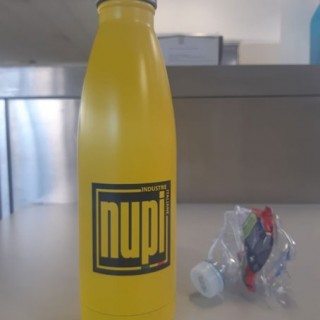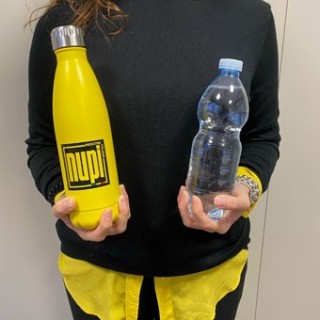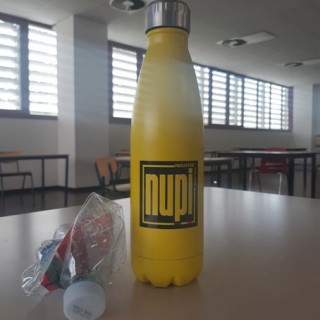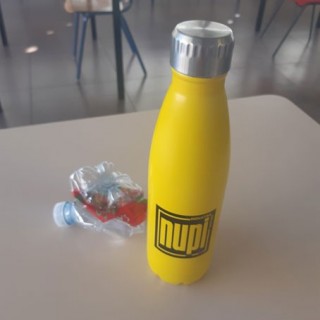NUPI WILL SAVE 29,000 DISPOSABLE PLASTIC BOTTLES PER YEAR
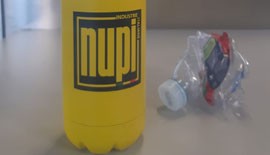
NUPI Industrie Italiane eliminates disposable plastic bottles from the canteens of its plants in Castel Guelfo di Bologna and Busto Arsizio, thanks to the installation of drinking water dispensers. All employees received a reusable aluminum bottle with NUPI logo. Thanks to this operation, approximately 29,000 single-use plastic bottles will be saved per year. The company that installed the dispensers currently prevents over 3,300 tons of packaging waste per year in Italy. The service also allows 100% prevention of transport and related environmental costs (in particular energy costs and polluting emissions into the air). The results of the reduction in transport that can be foreseen by calculating a water consumption of 1.5 to 2 liters by 600 users ranges from about 330 to 440 tons per year. The company currently avoids over 138,000 tons of goods transported per year (considering an average distance of 250 km). Annually, 12.5 billion liters of mineral water are bottled in Italy (about 81% of them in PET containers, a huge figure that required the use of about 330,000 tons of PET). But this is actually only a small amount, if we also consider the plastic produced for the packaging of soft drinks and broaden the range worldwide. Ministerial decree dated May 18th, 2010 concerning the hygiene regulations of packaging and containers intended to come into contact with food substances or substances for personal use, provides for the use of up to 50% recycled PET (R-PET) to produce new plastic bottles. However, this opportunity is not yet adequately exploited by bottling plants which, almost entirely, use virgin PET for the production of bottles. Only a few producers have recently experimented with recycled PET and vegetable plastics, with a reduced environmental impact, but they are rare on the national scene. The reduction of the environmental impact of plastic material is therefore achieved through a dual approach, a rule valid for any commercial product: reduction of packaging by producers and correct disposal by consumers. Also, whenever possible, choosing valid alternatives to plastic in everyday life.
